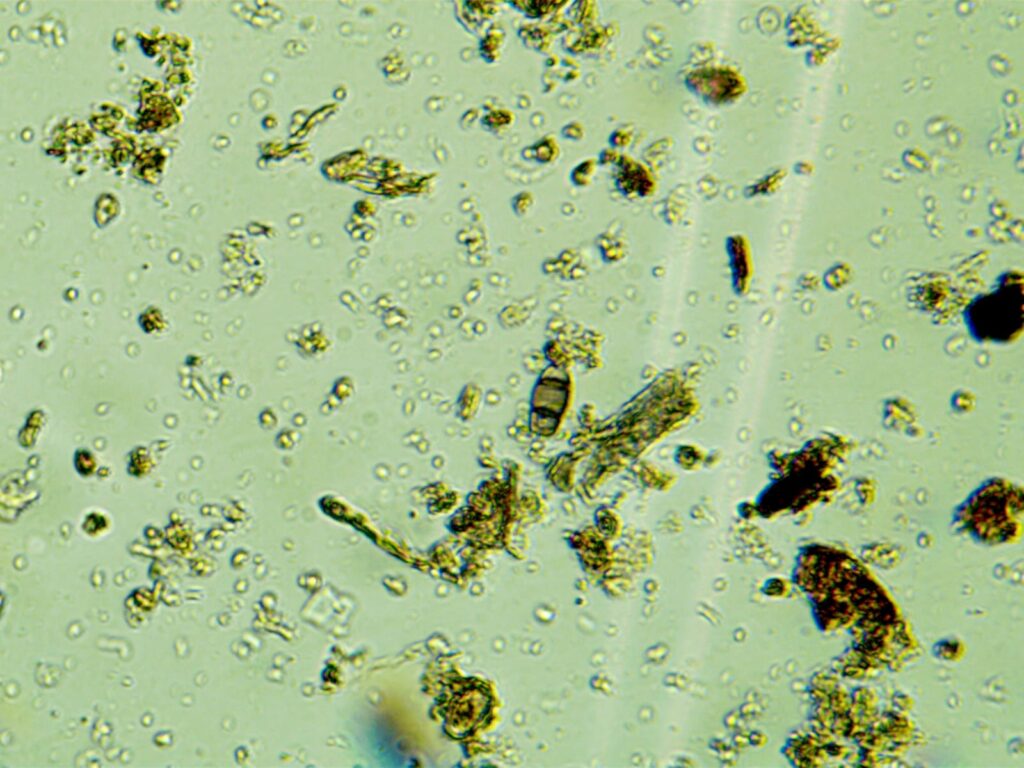Here’s something new you might find interesting within my compost and extract:
There are bacteria in our compost that can help plants defend against herbivores? One example is the genus Bacillus, which contains species that produce compounds toxic to insects and other plant-eating animals. These compounds can either kill the herbivores outright, or make the plant less appetizing to them.
Bacillus is also known to produce antibiotics, which can help protect plants from disease-causing pathogens in the soil. These bacteria are important members of the soil food web, and play a vital role in maintaining healthy ecosystems.
Another interesting group of microbes in our compost are the arbuscular mycorrhizal fungi. These fungi form symbiotic relationships with plant roots, helping them take up nutrients from the soil in exchange for carbohydrates produced by the plant through photosynthesis. This mutually beneficial relationship is critical for plant growth and health, and can even help plants survive in nutrient-poor soils.
Overall, the diversity of life in our compost is truly amazing, and each species plays a unique and important role in building healthy soils and supporting plant growth.
Another interesting group of microorganisms found in our compost that is often overlooked are the actinomycetes, a type of filamentous bacteria that are known for producing a wide range of bioactive compounds, including antibiotics and enzymes.
Actinomycetes are commonly found in soil and are especially abundant in compost. They play an important role in breaking down complex organic matter and cycling nutrients. In addition, their ability to produce bioactive compounds makes them potential sources for the development of new drugs and other bioproducts.
One specific example is the antibiotic streptomycin, which was first discovered from an actinomycete in the early 1900s and has since been used to treat a variety of bacterial infections. Other bioactive compounds produced by actinomycetes have been shown to have antifungal, antiviral, and anticancer properties.
Solubilizing bacteria such as Bacillus subtilis and Pseudomonas fluorescens are important components of soil microbiology that play a crucial role in improving plant nutrient availability. They have the ability to break down insoluble minerals in the soil, such as phosphorus, into forms that plants can easily absorb and utilize. This process is known as mineral solubilization and is an important function of soil bacteria.
Phosphorus is an essential nutrient for plant growth, but it is often present in soils in forms that are not easily available to plants. Insoluble phosphorus compounds can be converted into soluble forms by the action of solubilizing bacteria, which release organic acids and enzymes that break down these compounds. This makes phosphorus more accessible to plants, which can then take up the nutrient and use it for growth and development.
In addition to phosphorus, solubilizing bacteria can also break down other minerals in the soil, such as iron, zinc, and manganese, into forms that are more easily available to plants. This helps to improve overall nutrient availability in the soil and can lead to healthier and more productive plants.
Overall, the ability of solubilizing bacteria to break down insoluble minerals in the soil and improve nutrient availability is an important aspect of soil health and plant growth. By using organic farming practices that support soil microbiology, farmers and gardeners can promote the growth of these beneficial bacteria and improve the health and productivity of their crops.
So not only does compost contain a vast diversity of microorganisms that can benefit soil health and plant growth, it also has the potential to be a source of valuable bioactive compounds for the development of new drugs and bioproducts.
